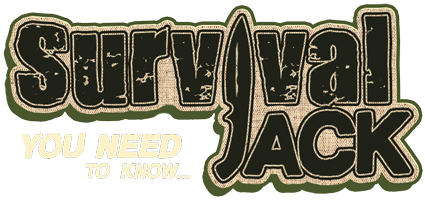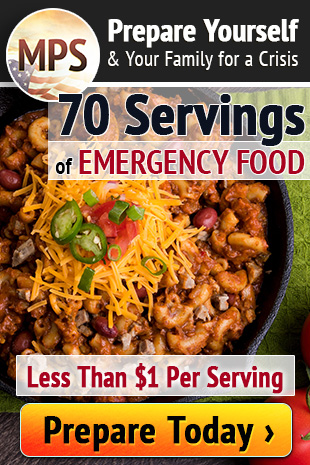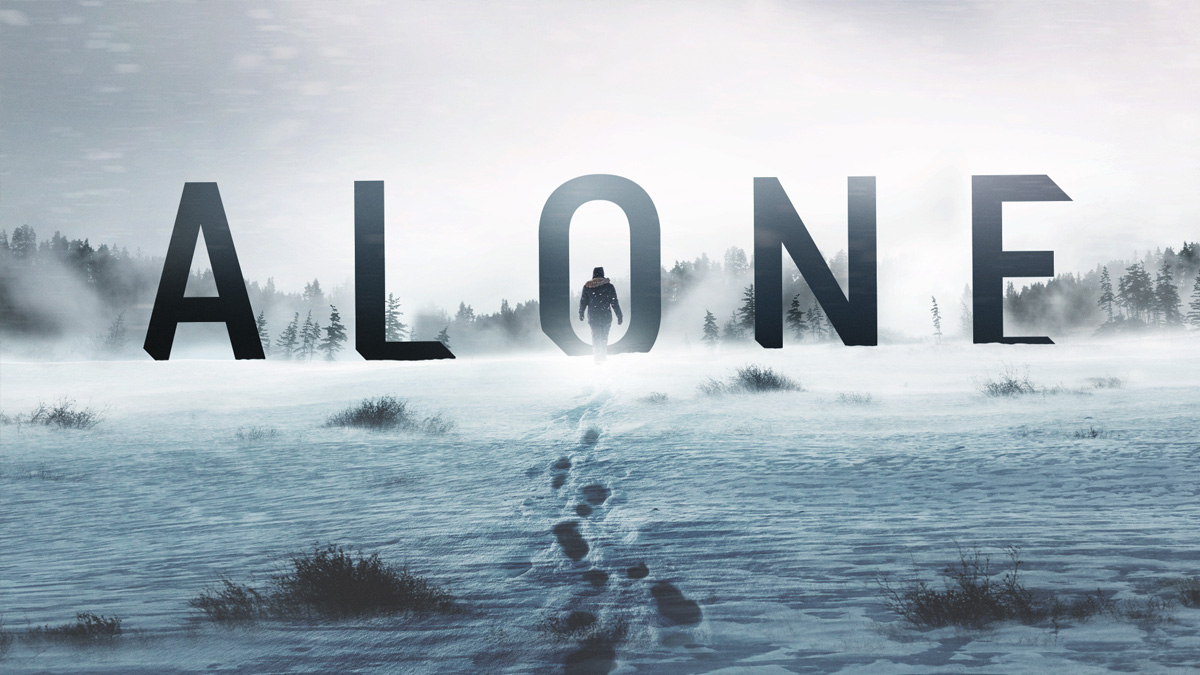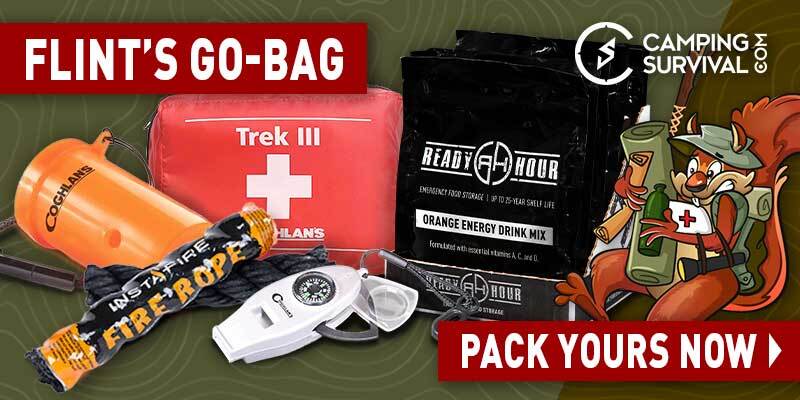on
If you haven’t watched the History Channels “Alone” you are missing out. The premise of the show is that 10 people are dropped off by themselves (with the exception of season 4 when their were pairs) and have to survive with just their 10 items while filming everything they do. They are out there until everyone has given up or been removed for medical reasons. They can choose to take 5lbs of food as one of their 10 items, but they are otherwise on their own for rustling up a meal. And they are dropped into locations where the weather and the local predators are very real dangers.
They are given an airhorn, bear spray and a flare to set off to keep away predators and they can opt to take a bow and 6 arrows, but no firearms are allowed.
But more than just building shelter and trying to figure out how to get food there is the psychological aspect of being out there entirely alone with no camera people and only quick and almost silent medical checks as your sole contact with any other humans. Usually, it is around the three-week mark that people begin to check out mentally. And very few make it past 50 days. So far the longest anyone has survived was the winner of season three who lasted 87 days!
Contestants do have a Satellite Phone and an Emergency GPS Beacon that they can use to contact the shows team if they get into a tough spot and need rescuing or if they decide they can’t take it anymore and want to go home. Knowing they can quit at any time definitely plays a psychological role. Some have lasted only hours before the fear of predators makes them “tap out”.
What I have learned from watching ALONE
1. Keep track of your gear! Several contestants have had to go home when they lost their ferrocerium rod which in a damp climate is pretty much your only hope of getting a fire started. I would strongly suggest either carrying a ferro rod with a brightly colored handle or lanyard attached or that you paint one end of your rod with a bright glow in the dark color to help you find it at night.
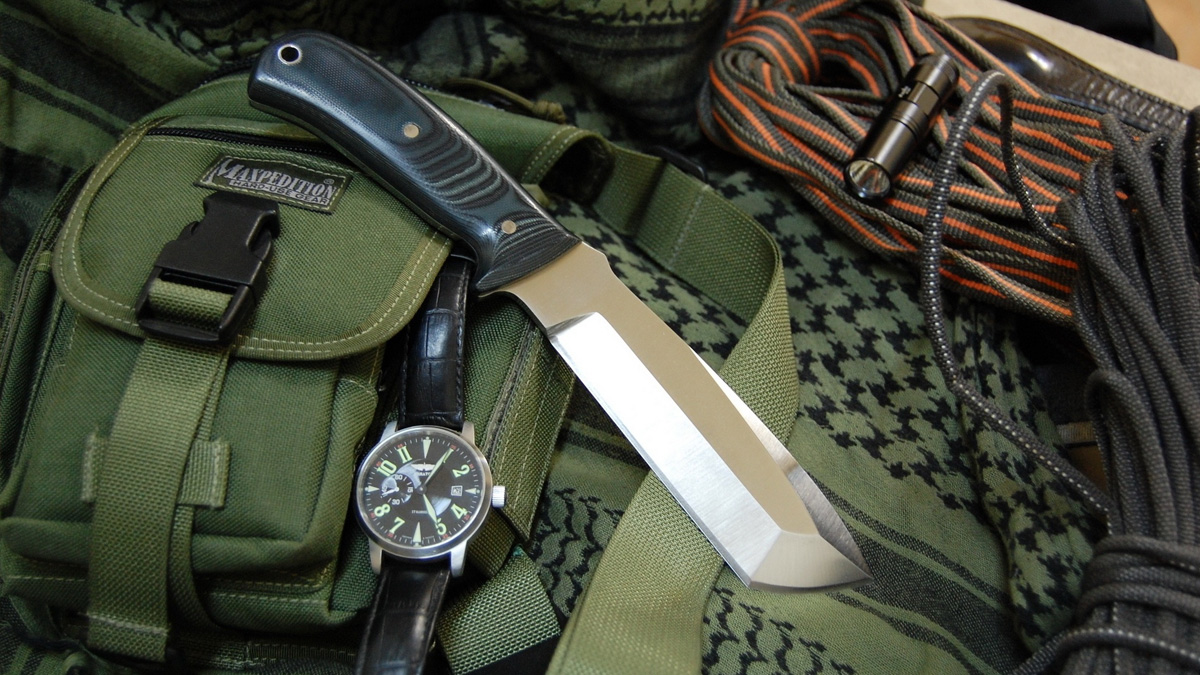
2. Choose your gear wisely. An ax cuts and splits wood faster than using a saw, but you are more likely to injure yourself with it even if you are experienced, especially if you are cold, tired and trying to work with little food. Several contestants have had to be evacuated due to ax injuries.
3. Know your edible and medicinal plants! Contestants were given a first aid kit that was not included as part of their 10 items. However, that kit did not include things for constipation and when constipation becomes fecal impaction it can kill you. So knowing which plants to eat to help keep things moving is important. Knowing which plants and how to use them in a poultice to treat wounds is also a handy skill that can keep you functioning. And of course, knowing what plants are edible is also important to help you get needed vitamins and minerals or even protein if your fishing and hunting isn’t going so well.
4. Taking down big game is a lot of work! Taking down big game will feed you for a long time IF you can preserve the meat AND keep it away from predators. When you are fit and healthy butchering a large animal is a lot of work, now imagine you have to haul it several miles back to your camp when you are starving and barely able to stand. Think about how you will keep that food from predators without having access to secure storage or a firearm. Getting the meat up high is the usual solution, but that can take time, draw predators to your camp while you are building the cache, may not be enough to keep scavengers away, and you could very well injure yourself while building it.
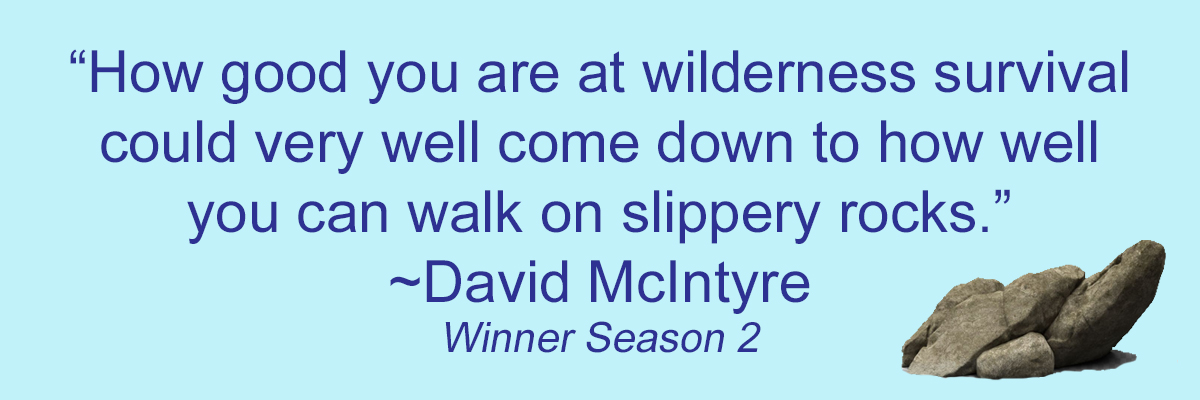
5. Be aware of natural hazards! Something as simple as getting your foot caught on a root, or slipping on a rock can have disastrous consequences when you are alone. How do you get back to camp, how do you get food? Several contestants have fallen into freezing water and ultimately had to be evacuated due to hypothermia. It is important to aware of your surroundings and potential hazards.
6. Do not cook in your shelter! It is ok to boil water or to make teas, but cooking meat or fish will most likely draw unwanted attention from predators. So cook your meals in a separate location. This may require a separate shelter and how far away it is from your sleeping shelter depends on what sort of predators you are most likely going to be dealing with.
7. Bring a white tarp! I know you are probably thinking I have lost my mind, but even on cloudy days, a white tarp as a roof gives the feeling of light, and as we all know light helps to improve your mood. Several contestants have done this, and the light factor was just as important as making sure your shelter is tall enough to easily stand up in. Small dark shelters are fine for a day or two, but after that you need something comfortable and welcoming.
8. Be adaptable! If your location isn’t working for you for whatever reason move. If your snares aren’t working, change up what you are doing. Change how you fish if what you are doing isn’t working. Be constantly thinking of what might work better.
9. Never pass up the opportunity to obtain food! Unless you have a very large stash of preserved food never pass up the opportunity to acquire more. Do not underestimate how starvation and dehydration affect your brain’s ability to function. If you do not have an adequate intake of both fluids and calories you will start making worse and worse decisions and may experience hallucinations as well. One contestant in Season 3 was eliminated after he chose to severely restrict his eating to only 200 calories every other day. When he was medically eliminated he still had over 30 preserved fish fillets he could have been eating!
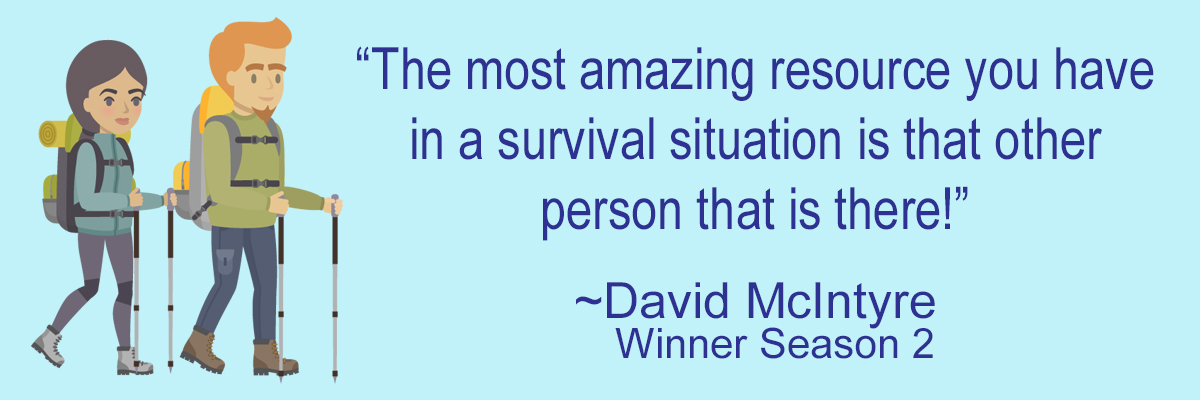
Subscribe for FREE to Continue Reading
Subscribe for FREE to get access to all of our premium content and get an email when new content is added.
The purpose of this blog is to present preparedness ideas for those that are brand new to the idea of being prepared for various disasters. We will also provide information for experienced ‘preppers’.
Get access to premium content and more!

